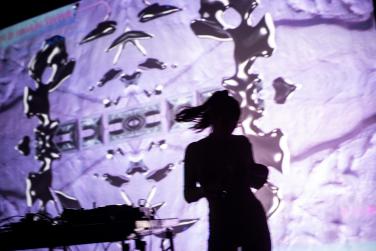
Intelligence has been thought of as an exclusively human attribute that justifies our superiority over other species. As such, our fascination for intelligent machines tends to be accompanied by feelings of suspicion and threat, as demonstrated by the recent controversies regarding large language models that have confirmed they have a soul. Fear over self-aware AI is fed by trans-humanist narratives and anthropocentric fallacies. However, instead of opposing a possible artificialisation of intelligence, we should accept that our own intelligence has always been artificial. Philosophers and neuroscientists like Andy Clark claim that we humans are cyborgs or “techno-human symbionts”, whose cognitive processes are extended through technological devices and cultural artefacts. From this perspective, intelligence is not an individual attribute, but rather a process distributed among humans, biological organisms, and technical systems that make up what Katherine Hayles has called the “cognosphere”. Intelligent behaviours seem to occur at all scales, from the molecular (which tend to be organised spontaneously in complex structures) to the planetary (constituting a unique, self-regulated system). Therefore, intelligence is everywhere, albeit in strange forms; an oddity that Freud would classify as concerning and traumatic, whose damage to humanity’s narcissism could open up new post-human horizons.
Toni Navarro's lecture at IMMATERIAL 2024 Artea eta Teknologia Festibala
